The biggest All-Star snubs in NBA history

In the NBA’s rich history, many players with strong cases for All-Star selection have been overlooked. Today, we delve into identifying the most significant All-Star snubs ever.
Using our Global Rating metric, which is fully explained here, we went back through NBA history to look at some of the biggest All-Star omissions ever.
(Note: While All-Star selections are made mid-season and our Global Ratings are end-of-season rankings, we can get a pretty good idea of who the biggest snubs ever are using the metric.)
Kareem Abdul-Jabbar (1978)
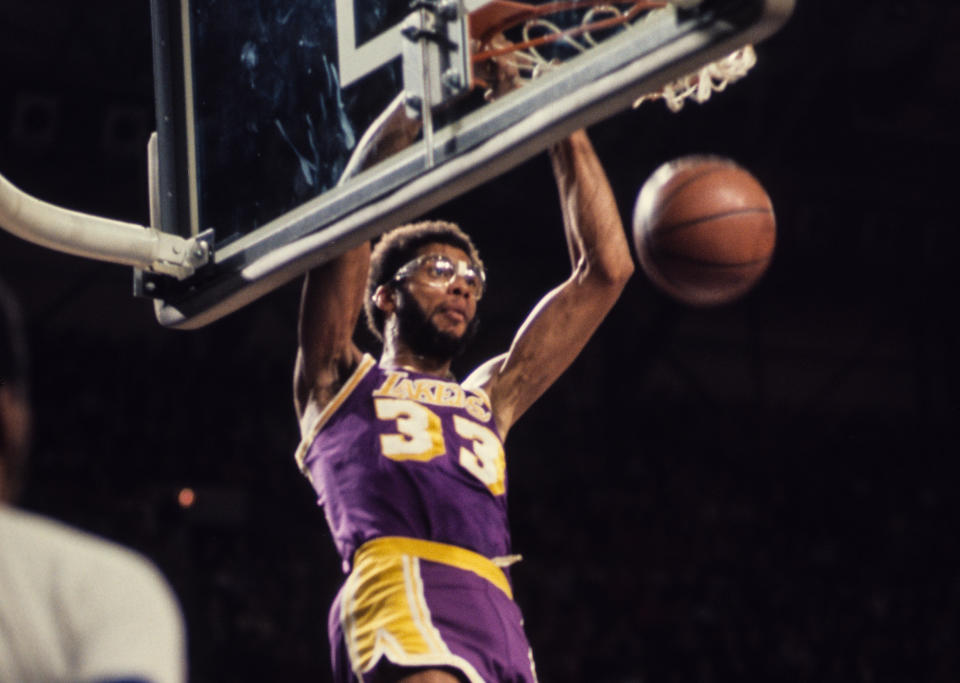
It’s well-documented that Hall-of-Fame big man and former all-time leading scorer Kareem Abdul-Jabbar was named an All-Star every year of his career… except for one. That came in 1977-78 when Abdul-Jabbar was famously snubbed from the festivities.
Of course, there was good reason for that, as at the time, Abdul-Jabbar, was still the best player in the league.
The reason that Abdul-Jabbar was not named an All-Star in 1977-78 is because he broke his hand two minutes into the season while punching reigning No. 1 pick Kent Benson.
The 19-time All-Star would be fined a then-record amount of $5,000 but not suspended, though he would miss 20 games due to the injury. Abdul-Jabbar would return by early December, giving him a 29-game sample size from his return until the All-Star break to make his case – a stretch in which the UCLA legend averaged 27.0 points, 13.2 rebounds and 3.1 blocks, All-Star-level numbers through and through.
Still, voters deemed that not enough of a body of work for All-Star honors, making Abdul-Jabbar arguably the biggest snub of all time, especially when you further consider he’d go on to finish fourth in the MVP vote that year while earning 2nd Team All-NBA distinction.
Gus Williams (1980)
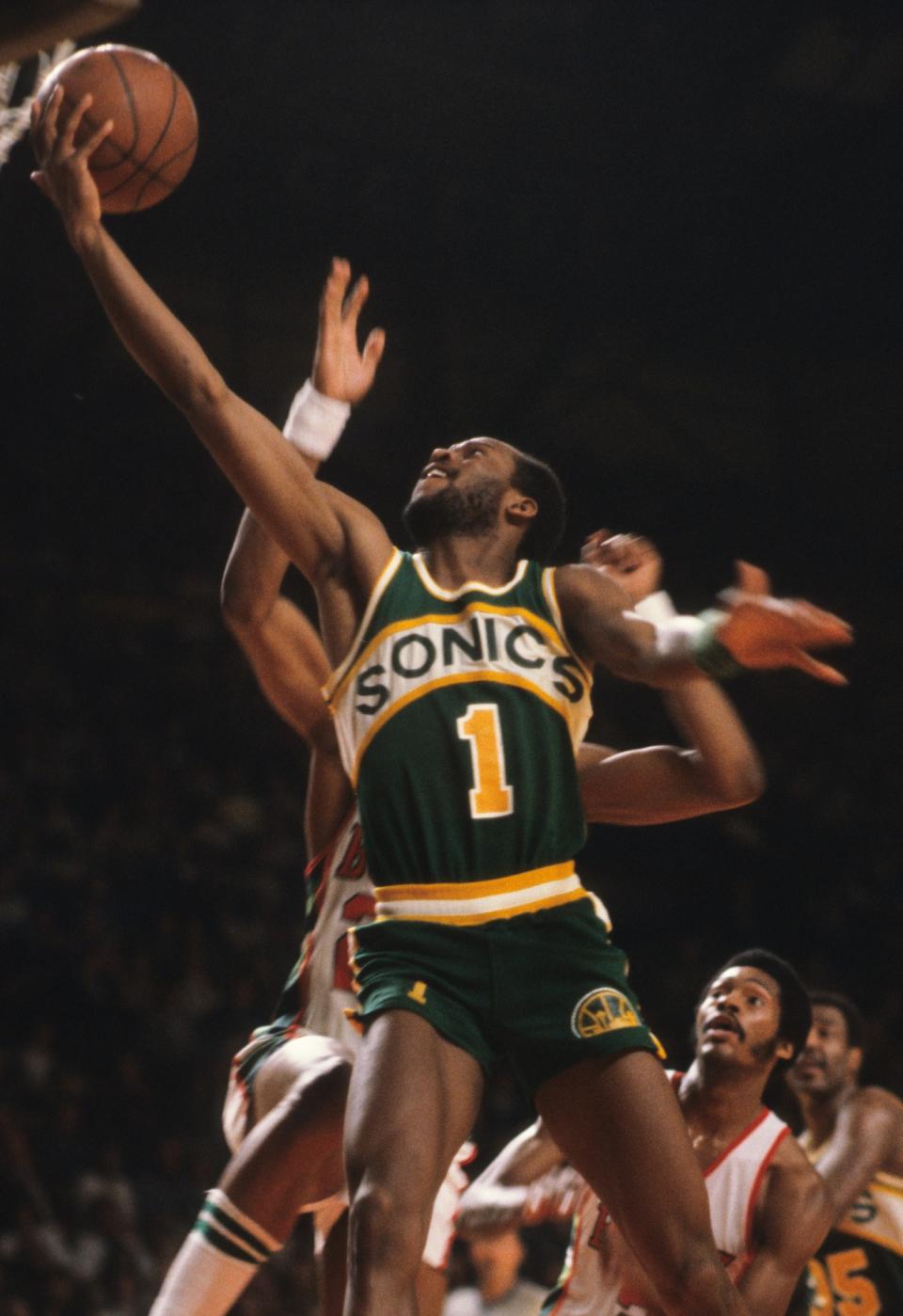
On the other hand, there’s really not much of an explanation as to why Seattle SuperSonics legend Gus Williams was snubbed from the All-Star game in 1980 besides perhaps a lack of popularity with fans and coaches.
Williams was one of the best players on an elite Sonics team at the time, one that was the reigning NBA champion and had just made it to back-to-back Finals. The New York native didn’t miss a game that entire season, was averaging 22.4 points and 5.1 assists by the All-Star break and would end up earning 2nd Team All-NBA honors that year, making this snub truly perplexing.
The West was pretty loaded at the time at the guard position, as World B. Free (averaged 30-plus points that season), Magic Johnson, Williams’ teammate in Seattle Gus Johnson, Otis Birdsong and Walter Davis were named All-Stars that year, but Williams had similar numbers to Birdsong and Davis, so a strong case should have been made that he deserved to be an All-Star that year over either of them, especially considering his status of reigning NBA champion at the time.
Regardless, after an ugly holdout that cost Williams the entire following season, he would eventually make back-to-back All-Star appearances in 1981-82 and 1982-83, so some justice was served for Williams in the end.
Artis Gilmore (1977)
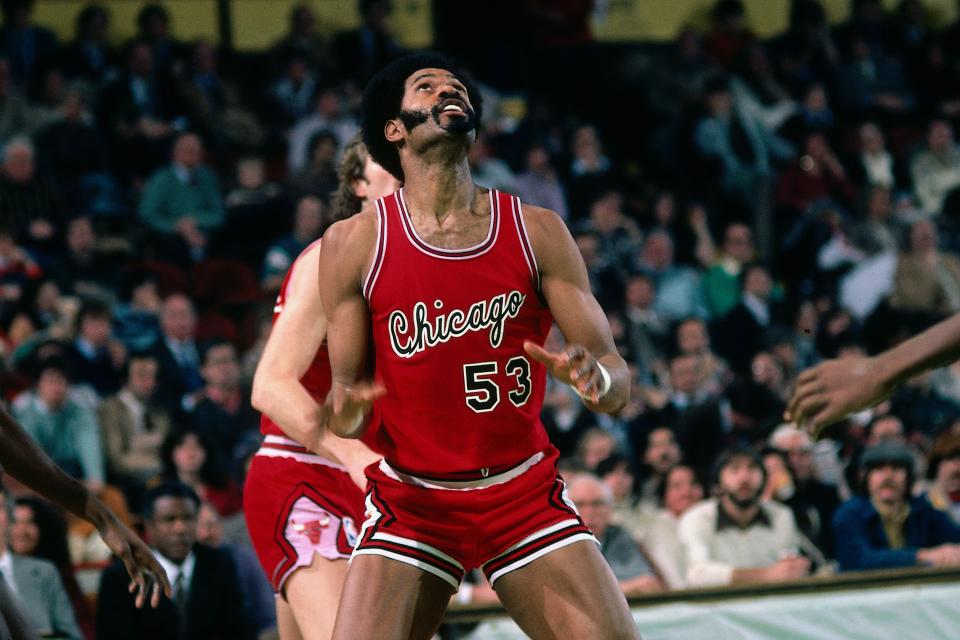
Freshly arrived from the rival ABA, Chicago Bulls legend Artis Gilmore would be snubbed from All-Star festivities in 1976-77, his first year in the NBA, despite coming off of five straight ABA All-Star appearances and leading Chicago in scoring, rebounding and blocks that year.
Gilmore would even finish 10th in MVP that season, the year he was snubbed from the All-Star Game, making this decision even more egregious.
Of course, it didn’t help that the East was absolutely loaded in the frontcourt position that year, with names such as Bob McAdoo and Elvin Hayes being named All-Star big men in the East but even so, Gilmore was averaging over 18 points, 12 rebounds and two blocks by that campaign’s All-Star break for what was a playoff-level Bulls team, so he should have gotten more consideration for the prestigious event.
Regardless, Gilmore would go on to make six NBA All-Star appearances in his career so his talents would eventually be appreciated.
Clyde Lovellette (1958)

A four-time NBA All-Star in his career, legendary big man Clyde Lovellette would miss out on the honor in 1957-58 in what Global Rating deems one of the biggest All-Star snubs of all time.
It didn’t help that there were merely 10 All-Star spots available per conference back then with three of them in the West already going to fellow centers Bob Pettit, Maurice Stokes and Larry Foust but even then, Lovellette had a strong case, as he finished the campaign averaging 23.4 points and 12.1 rebounds.
Maybe the fact Lovellette’s Cincinnati Royals team was just a middling squad that year – they would finish 33-39 on the campaign and get bounced in the first round of the playoffs – hurt his case but nevertheless, statistically, Lovellette arguably should have been an All-Star in 1957-58.
Charles Barkley (1986)

One of the 75 greatest players of all time – No. 25 in our own HoopsHype77 rankings – Charles Barkley would make 11 All-Star appearances in his Hall of Fame career, but Global Rating believes it should have been more, as Barkley was snubbed in his second season, 1985-86.
By the All-Star break that year, Barkley was putting up 18.4 points, 10.9 rebounds, 3.5 assists, 2.0 steals and 1.6 blocks for a 32-17 Philadelphia 76ers team – numbers and a team record that should have made him an All-Star in that campaign.
Barkley did end up being named a 2nd Team All-NBAer for 1985-86 and absolutely dominated in his 12-game playoff run that year, putting up 25.0 points, 15.8 rebounds, 5.6 assists, 2.3 steals and 1.3 blocks as Philadelphia came within one game of reaching the Conference Finals, only further proving he should have been an All-Star that campaign, too.
We can just blame Barkley’s youth and the East’s loaded rotation of power forwards at the time – 1986’s All-Star power forward rotation featured Larry Bird and Kevin McHale, although Barkley should have made it over Buck Williams.
Nate Thurmond (1972)

A five-time All-Star at the time of his big snub, Hall-of-Fame big man Nate Thurmond was omitted for this prestigious honor in 1971-72, a campaign in which Thurmond was averaging 17.7 points and 15.1 rebounds at the time of the All-Star break. Thurmond would also wind up getting 2nd Team All-Defense honors this season, showing he was making a high level of two-way impact and not just putting up empty stats.
The main thing that stopped Thurmond from being an All-Star that season was just how absolutely loaded the Western Conference was in the frontcourt at the time. Some of his fellow big men who got All-Star honors out of the West were Abdul-Jabbar, Wilt Chamberlain, Bob Lanier, Elvin Hayes and Spencer Haywood, so two of the five or six greatest players of all time and three other Hall-of-Famers.
It speaks to Thurmond’s greatness that he was a seven-time All-Star in his career in what was such a stacked era for frontcourt players.
Wes Unseld (1970)
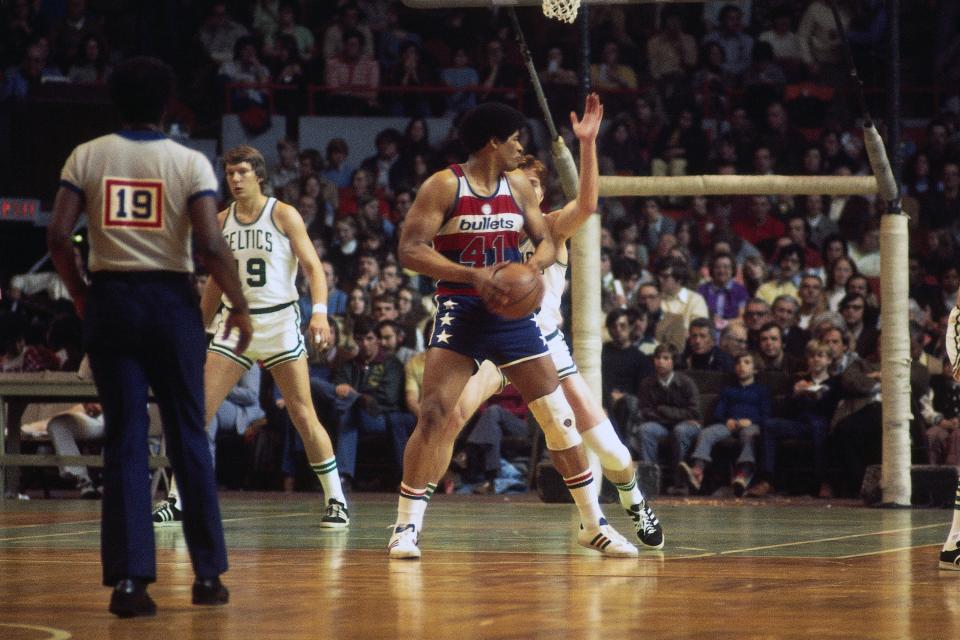
Coming off a rookie season that saw him take home league MVP honors, Hall-of-Fame center Wes Unseld was a surprising All-Star snub in his sophomore campaign of 1969-70. At the time of the All-Star break that season, Unseld was averaging 16.7 points and 15.8 rebounds while his Baltimore Bullets sported a healthy 30-19 record.
Of course, sharing a conference and position with Abdul-Jabbar and Willis Reed didn’t help Unseld’s case that year but considering he was an All-Star in four of his first five seasons besides this one, it was a surprising snub.
Kevin Johnson (1997)
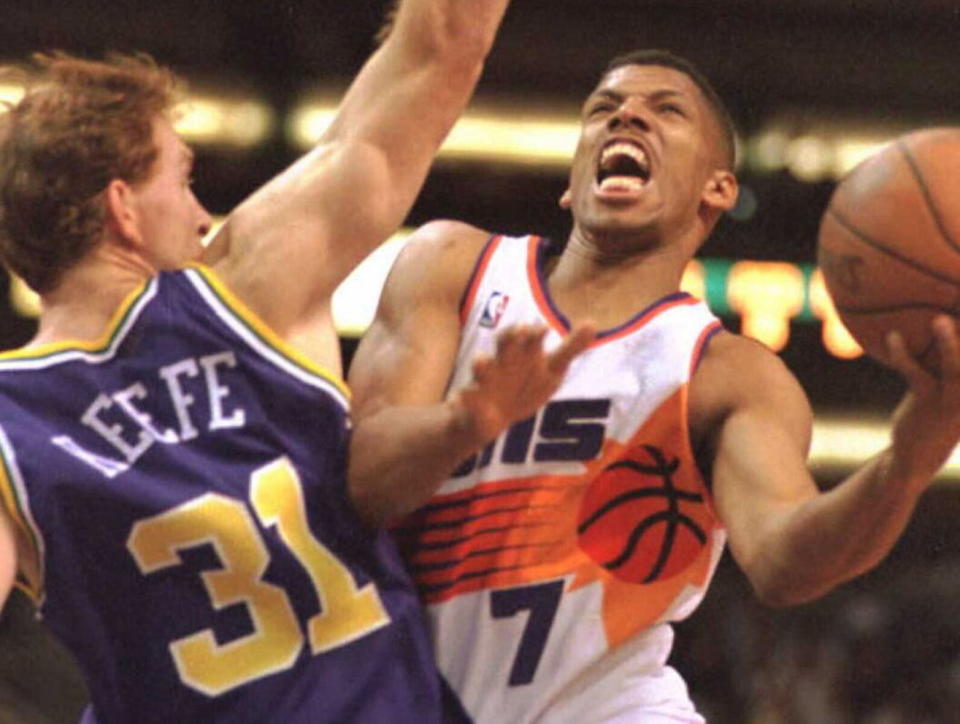
A well-known high-level player by the time of his 1996-97 All-Star Game snub, Phoenix Suns legend Kevin Johnson missed out on the honor that year despite averaging 17.1 points and 9.1 assists by that year’s All-Star break. Johnson was quite efficient that season – shooting 42.2 percent from three at the All-Star break – and made a two-way impact, averaging 1.3 steals.
Johnson would take that snub personally, as the legendary ’90s point guard would average 23.4 points and 9.6 assists from the All-Star break until the end of the campaign while leading Phoenix to the playoffs.
It was simply a tough time to be an All-Star point guard in the West that year, as Johnson was snubbed for Gary Payton and John Stockton, two of the greatest point guards ever.
Kevin Johnson (1989)
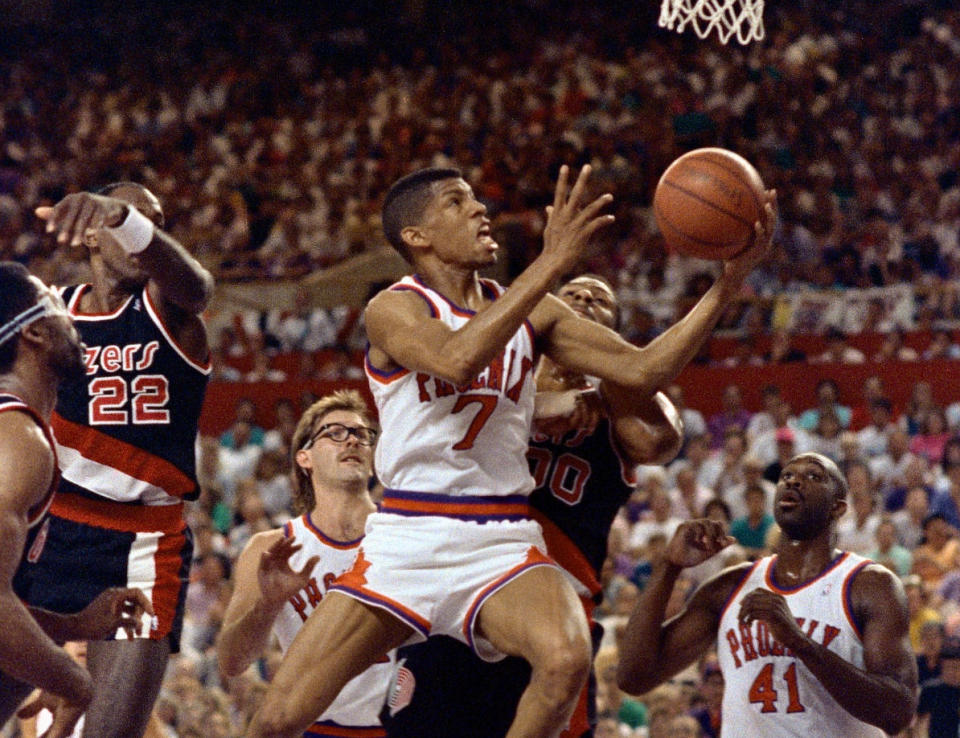
John Stockton (1988)
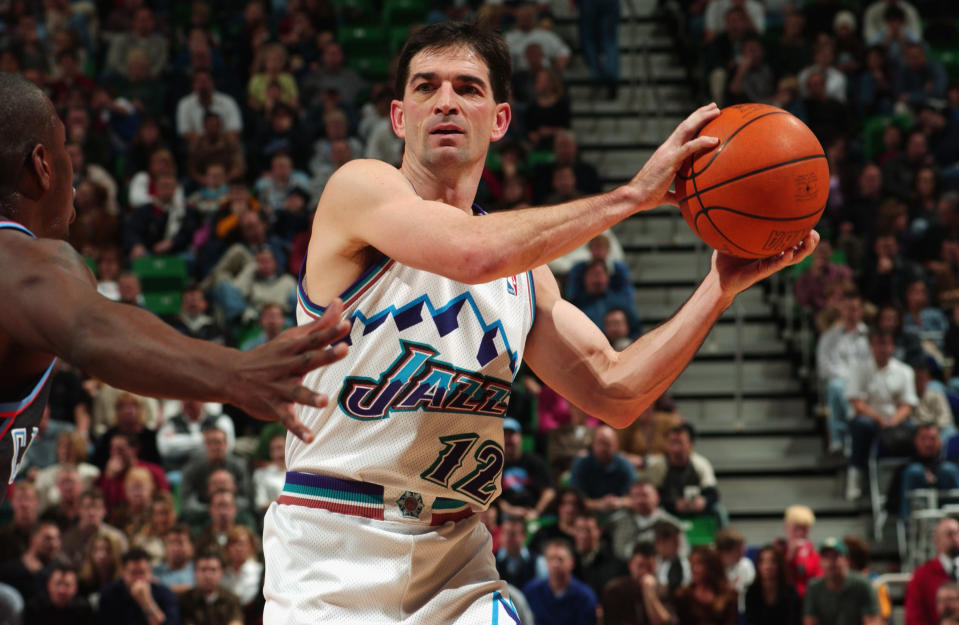
Speaking of Stockton, although he cost Johnson one or two deserving All-Star spots, it’s not like he didn’t get snubbed for the honor in his career himself.
That happened, according to Global Rating, in 1987-88, Stockton’s fourth season in the NBA. That year, Stockton was averaging 13.2 points, 11.4 assists and 2.6 steals while shooting 54.5 percent from the floor at the All-Star break for a Utah Jazz team that would end up getting to the second round of the playoffs that year, and come within a game of the Conference Finals.
Not only that, but Stockton would also lead the NBA in assists that season at 13.8 (to go with 3.0 nightly steals) and end up being named as a 2nd Team All-NBAer, showing what a bad All-Star snub this was.
Nate Thurmond (1969)
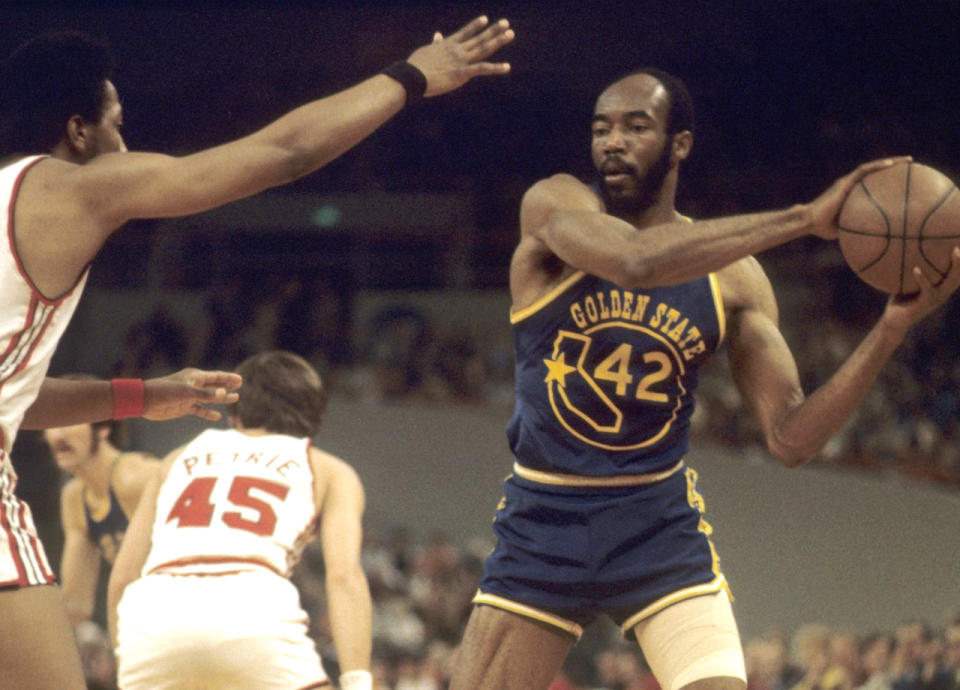
Thurmond, a member of the San Francisco Warriors, was averaging 22.5 points and 18.8 rebounds at the 1969 All-Star break but was ultimately snubbed in favor of the likes of Chamberlain and Hayes. Thurmond was a 1st Team All-Defender that season, too, while leading the Warriors to the playoffs, where they were ultimately ousted in Round 1.
Paul Westphal (1976)
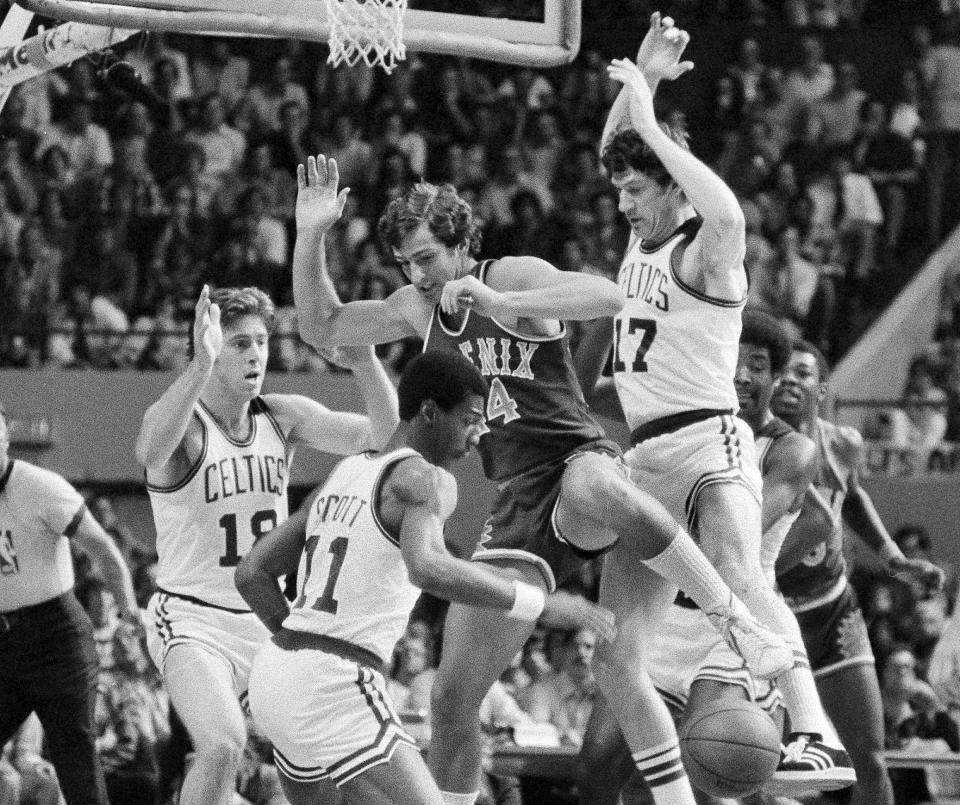
Just before making five All-Star appearances in a row, Hall-of-Fame guard Paul Westphal was snubbed of the honor in 1975-76, a season in which he was averaging 18.9 points and 5.5 assists at the All-Star break.
That year’s All-Star guards in the Western Conference, where Westphal played as a member of the Suns, included Tiny Archibald but wasn’t strong enough that Westphal shouldn’t have made it in himself
Regardless, that season ended with Westphal helping lead the Suns to the Finals as he averaged over 21 points and five assists in the playoffs to make his All-Star snub look even worse.
Norm Nixon (1979)

Clyde Drexler (1987)
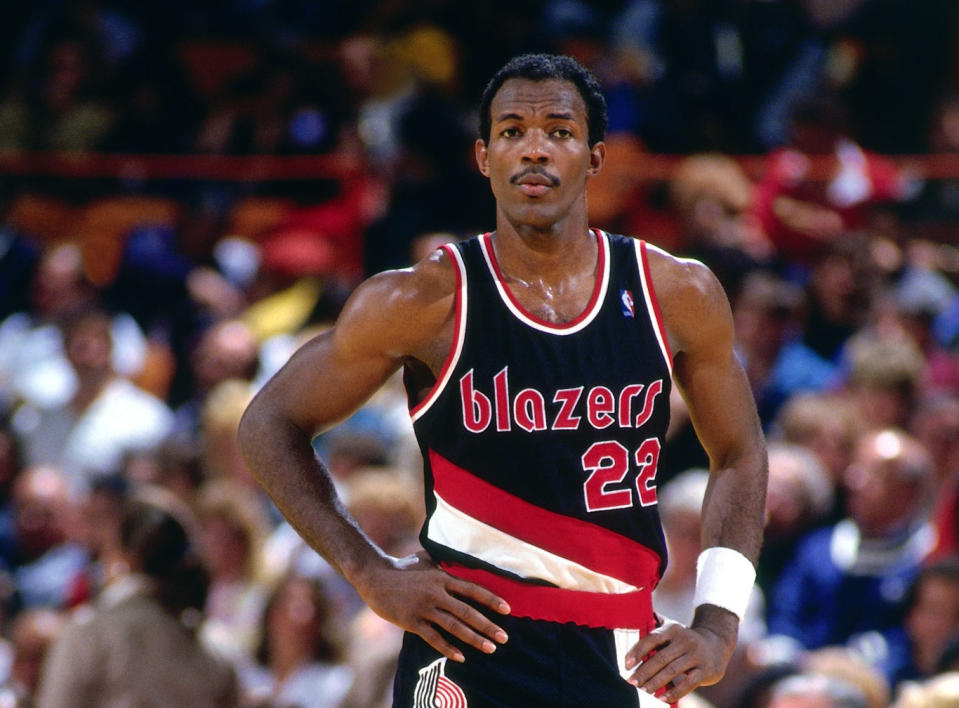
Drexler was averaging 19.9 points, 6.4 rebounds, 6.6 assists and 2.5 steals by the 1987 All-Star break and didn’t miss a single game of action. Meanwhile, his Portland Trail Blazers were a healthy 30-19 at that point and would go on to make the playoffs.
Maybe it was the right decision at the time but it’s interesting to see Drexler miss out on All-Star honors that year in favor of other 2-guards out West like Alvin Robertson and Rolando Blackman, good players in their heyday but not all-timers like Drexler wound up being.
Deron Williams (2008)
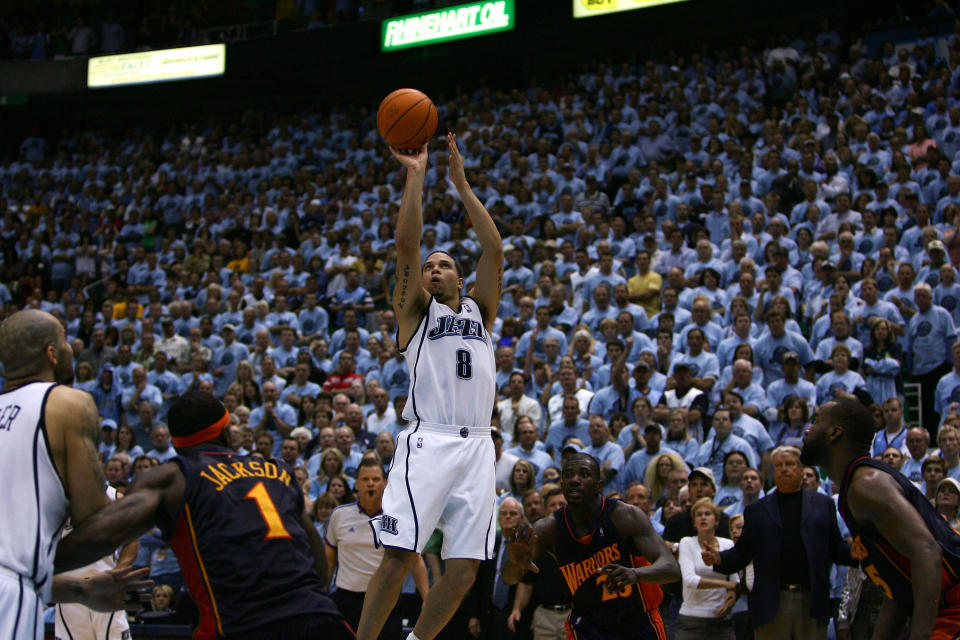
Many younger fans might not remember it today but there was a time when there was a legitimate debate as to who the better point guard out West was: Chris Paul or Deron Williams.
Obviously, in hindsight, that debate looks silly but in his prime, Williams was one of the best lead guards in the league and gave Paul a run for his money.
Regardless, Williams was snubbed of All-Star honors at the height of that debate back in 2007-08. That season, the Utah Jazz point guard was averaging 19.1 points and 9.7 assists at the All-Star break while shooting over 51 percent from the floor and over 40 percent from three. The Jazz were a strong team that season, too, finishing 54-28 on the year and getting to the second round of the playoffs behind the stellar scoring and playmaking of Williams.
What ultimately ended up costing Williams his All-Star spot that year was the fan vote, which saw NBA supporters vote in fan-favorite Allen Iverson as the All-Star starter at point guard, causing the coaches to have to use the other lead guard spots on Paul, Brandon Roy (a monster before the injuries) and two-time league MVP Steve Nash, leaving Williams out in the cold.
Yes, that was Iverson’s last great year in the NBA so he probably deserved his All-Star spot as he averaged over 26 points and seven assists that campaign, but according to multiple advanced metrics, Williams was the better player that season. As further proof, Williams finished 2007-08 as a 2nd Team All-NBAer while Iverson didn’t get any All-NBA honors, so it’s debatable who should have been the All-Star that year.
Oh, and for good measure, Williams was selected the following summer to play for a legendarily loaded Team USA squad at the Summer Olympics as a member of the Redeem Team.
So ultimately, Williams, who would go on to make three All-Star appearances in his career after that, ended up bouncing back nicely from the snub.

